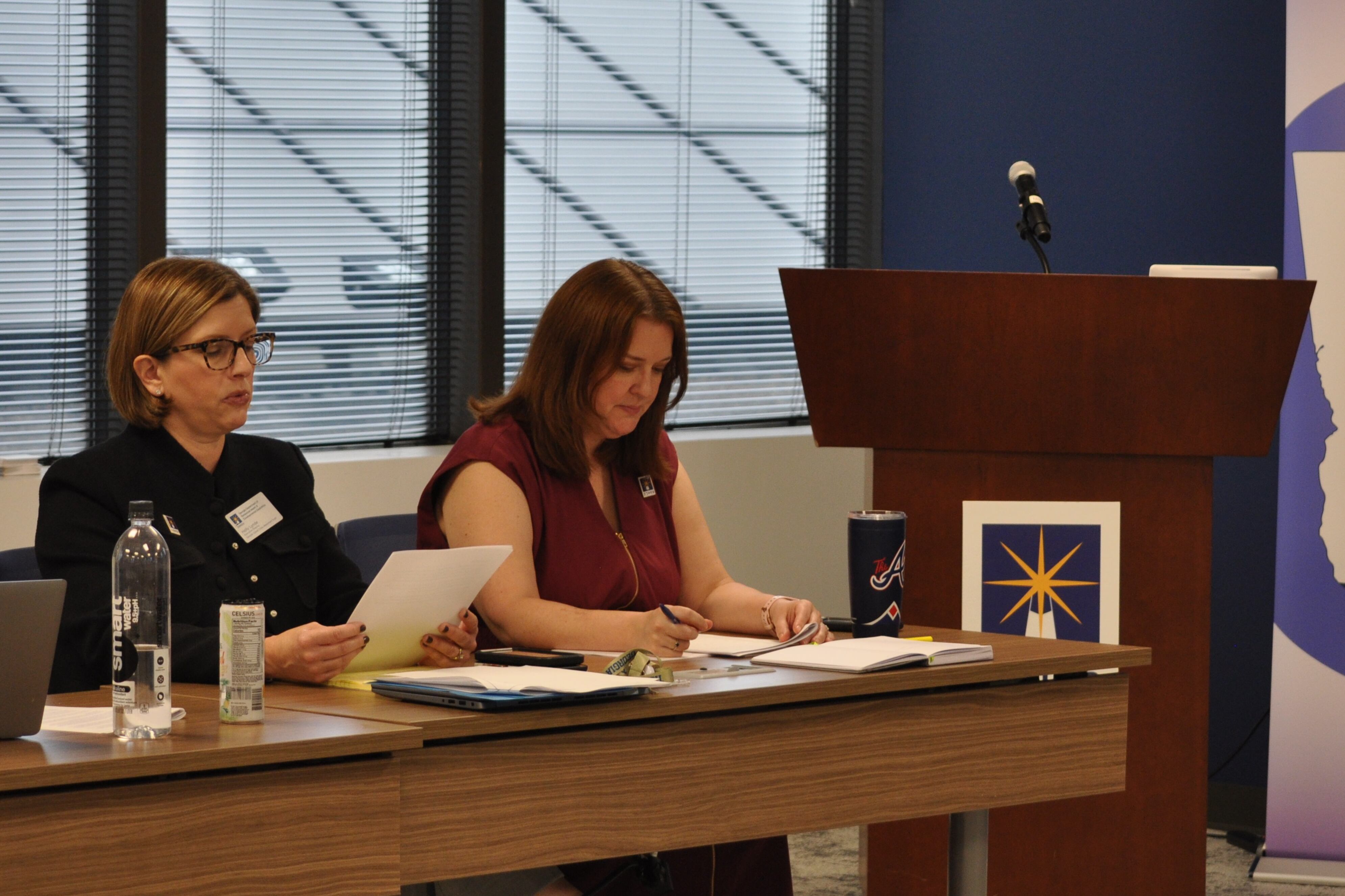Public health, explained: Sign up to receive Healthbeat’s free Atlanta newsletter here.
Building more beds for women in recovery, increasing access to the overdose-reversing drug naloxone and other projects to help abate Atlanta’s overdose epidemic were among those recommended Thursday to receive funding from Georgia’s opioid settlement dollars.
The Georgia Opioid Settlement Advisory Commission met in downtown Atlanta to discuss which of over 300 project applications should get an award from the state’s Opioid Crisis Abatement Trust.
The funds came from lawsuit settlements with AmerisourceBergen, Cardinal Health, Janssen Pharmaceuticals, and McKesson. In those lawsuits, experts alleged the companies spent years selling addictive prescription pain medications in ways that endangered Americans.
The commission made recommendations for projects across the state of about $44 million for 2025 and $27 million for 2026. In the Atlanta area, the commission recommended the trust spend about $1.3 million over the next two years.
The actual decisions will be made by the trust’s manager, Department of Behavioral Health and Developmental Disabilities Commissioner Kevin Tanner. He left the meeting before it started to allow the commission to make its recommendations independently. Tanner’s spokesperson said he expects to make the official awards in the next few weeks.
In recent years, Georgia and Atlanta have seen dramatic increases in drug-related deaths. The state and capital city’s 2023 overdose rates are more than double what they were a decade ago, mirroring national statistics.
Earlier this year, Tanner had the Behavioral Health Department evaluate what regional and state resources were missing to help residents with addiction. The department published eight reports, which showed that many Georgia communities lacked services like clinics for people to withdraw from opioids safely and medication to make that process less painful and more effective.
In the metro Atlanta region, one of the analyses found that Gwinnett County was lacking many key resources needed to address opioid addiction, including treatment centers for women, in-patient options, and housing for people in recovery.
The only project the committee recommended specifically for Gwinnett County was a proposal from its Board of Health for about $200,000 to expand naloxone access. Gwinnett programs can also receive settlement funding through the Opioid Trust’s Qualifying Block Grantee program, and trust Executive Director Holly Lynde said those funding decisions will be made separately from the advisory committee.
Lynde spent the meeting reading the names of recommended organizations, how much funding was recommended, and a one-line description of their plans. But the commission spent nearly no time discussing the recommendations before signing on to them.
For the over $20 million of recommendations for projects specific to one of six Georgia regions, the applications were considered by regional advisory committees, which do not hold public meetings. The project applications Tanner accepts will be published online, but the public will not have an opportunity to learn more details about the grantees’ plans until after he approves them.
Lynde also proposed that the advisory committee recommend the Opioid Trust fund an additional 1,000 grants worth $5,000 each for Rotary District service projects. The motion was unanimously approved.
Commission Chairperson Evan Meyers said he expects the next advisory committee meeting to be held in late February or early March, and he proposed holding it somewhere other than Atlanta.
Allen Siegler is a reporter covering public health in Atlanta for Healthbeat. Contact Allen at asiegler@healthbeat.org.







